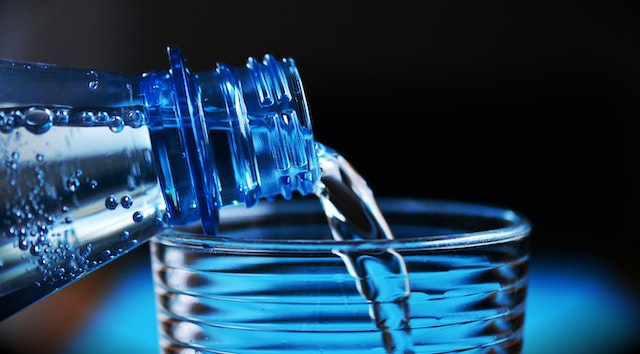Have you ever woken up in the middle of the night with a dry throat and a frustrating thirst for water? Throw in some walking down a flight of cold, dark stairs, and the whole thing becomes a real inconvenience. So, if you drink a glass of water or keep one ready beside your bed for the night, you are off to a pretty good start.
But, on the flip side, have you ever climbed into bed after gulping down a full glass of water and woken up to relieve your bladder (known as nocturia)? It happens to us a lot more than we think, and you know how frustrating it gets.
So, here’s the dilemma. Does being hydrated help you sleep better? Or does it obstruct your sleep instead?
Well, water and sleep have a complicated relationship. In this post, we will dive into the possible advantages and disadvantages of drinking water before sleep. We will find answers to questions like ‘How does being hydrated help you sleep?’ and help you decide on your bedtime routine. Let’s get started.

So, How Does Being Hydrated Help You Sleep Better?
Water is the center of our well-being. Being hydrated helps metabolism, prevention of infections, and much more. But what about sleep? Does being hydrated help you sleep better? Yes, conditions applied.
Simply put, just like all other physiological processes, water can also enhance our sleep. Therefore, being hydrated before sleep is as important as being hydrated throughout the day.
Here are a few science-backed reasons why being hydrated helps you sleep better.
1. Promotes better sleep.
It doesn’t get more straightforward than this. Drinking water helps you drift off to sleep easily. There are multiple reasons for this. Firstly, water helps in enhancing metabolism. When our bodies are digesting food, they need more energy. This increases our heart rates, making it difficult to fall asleep.
Drinking water also helps keep your nasal and throat passage in tip-top condition and reduces dryness. Therefore, the chances of snoring or waking up thirsty decrease, further enhancing your sleep quality.
Read more: Sleep Better Tonight – 10 Effective Tips On How to Sleep Well
2. Maintains body temperature.
Another answer to ‘how does being hydrated help you sleep better,’ is that it maintains your body temperature.
Water plays a vital role in maintaining the circadian rhythm or body clock. The human body generally cools down while falling asleep. Anything that disrupts this will disrupt your sleep. Drinking water before bed keeps your body temperature stable, thereby aiding in quality sleep.
3. Cleanses the body.
Water is one of the best detoxing agents and helps remove metabolic wastes effectively.
The link of this with your sleep is pretty simple. You are generally required to sleep for eight hours on a stretch. Drinking water ensures you strike a balance and your bodily functions perform well during this time.
Read more: How To Detox Your Body And Mind Naturally?
Are There Any Downsides To Drinking Water Before Sleep?
While it is essential to be hydrated and drink water throughout the day, drinking a lot of water right before sleeping might not be a great idea. In fact, it is one of the primary reasons you are likely to wake in the middle of the night with a full bladder.
After visiting the restroom, people generally take time to fall back asleep. This fragmentation in sleep further cuts your sleep duration. The next day, you wake up feeling tired. This accumulated sleep debt slowly piles up and completely disrupts your sleep cycle.
Additionally, in older adults, light sleep increases the chances of nocturia. As per a Swedish study, nocturia is associated with increased chances of sleep disorders. It also increases the chances of heart disease, stroke, and diabetes.
Therefore, instead of gulping down a few ounces of water right before sleeping, a better strategy is to divide your water intake throughout the day.
Conclusion:
Sleep and water have a pretty complicated relationship. A lack of it can disrupt your sleep cycle, and excessive intake right before bed can also be counterproductive. The key is to concentrate on drinking as much water as possible during the day.
We hope this post on ‘How does being hydrated help you sleep better,’ will help you figure out a good bedtime routine for yourself.
Dealing with frequent sleep disruptions lately? They might be signs of a sleep disorder. To learn more about the signs of a sleep disorder, click here.
To continue learning about sleep and mental health daily, subscribe to Your Mental Health Pal.

